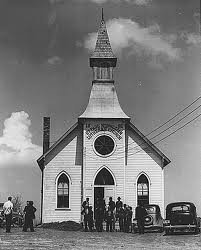
Louisiana Church records definitely are a exceptional source for the genealogical and historical researcher. In many parts of Louisiana, church records predate civil records. They therefore record vital events, giving birth, marriage, and death details which may otherwise be lost. Aside from furnishing names and dates, church records may expose relationships between people and show a family’s status in the community. In addition, records of a personal nature are not unusual, and these could provide a peek into an ancestor’s persona or habits.
Previous to Louisiana Parish and city governments stored vital records, many people documented significant dates, events, and names in their family Bible. Family Bibles are beneficial research tools. Although the dates cannot be guaranteed, Family Bibles are a tangible link with past generations.
Up until the Louisiana Purchase was made in 1803, the Catholic Church was the only church with a presence in the region. According to a quote in Winston DeVille, Gulf Coasts Colonials [Baltimore: Genealogical Publishing Co., 1968], page 11, a historian named James D. Hardy Jr., it was required that residents “be baptized, married and have their children baptized, and be buried as Catholics. A marriage performed anywhere but a Catholic Church was invalid, and the parties were living in sin. Their children were illegitimate…and their [marriage] contracts were unenforceable at law. Babies not given baptism were not people, and their births were unrecorded.”
In the early 1800s, the Catholic Church created new requirements for recording such events. Therefore, many records exist from that point forward. The newer marriage records list the names of the couple, female’s maiden name, names of the parents, names of the grandparents, and places of origin. Both Spanish and French era church records still exist today, although some have been lost over the years. Extant records that may be helpful to researchers include bishops’ records and church records. The Diocese of Quebec served the region when it was under French control. When it was under Spanish control, it was served by the Diocese of Havana. That lasted until 1793.
In 1793, the diocese of Louisiana and the Floridas was established. Bishops’ records prior to 1793 and after 1803 are not as useful to researchers as those that exist for that 10-year period. The dispensation records for that time can be especially helpful. Dispensations asked the Church to allow the couple to be married even though problems existed, such as one individual not being Catholic, or both individuals being relatives, such as second cousins. Some original registers from the Catholic Church of the time are still extant. Many have been abstracted and translated. Those copies may not be entirely accurate, but can still hold valuable information.
Louisiana Church and Bible Links
- Louisiana, Births and Christenings, 1811-1830; 1854-1934 (familysearch.org)
- Inventory of the church and synagogue archives of Louisiana.
- Louisiana City Parish Index
- Natchitoches, 1729–1803. Abstracts of the Catholic Church Registers of the French and Spanish Post of St. Jean Baptiste des Natchitoches in Louisiana. Vol. 2. (amazon.com)
- Natchitoches, 1800–1826. Translated Abstracts of Register Number Five of the Catholic Church, Parish of St. François des Natchitoches in Louisiana. Vol. 4. (amazon.com)
- Guide to Church Records in Louisiana, 1720– 1975 (amazon.com)
- A Southern Catholic Heritage. Vol. 1, 1704– 1813 (amazon.com)
- Louisiana Church Books (amazon.com)
- Louisiana Bible Books (amazon.com)
